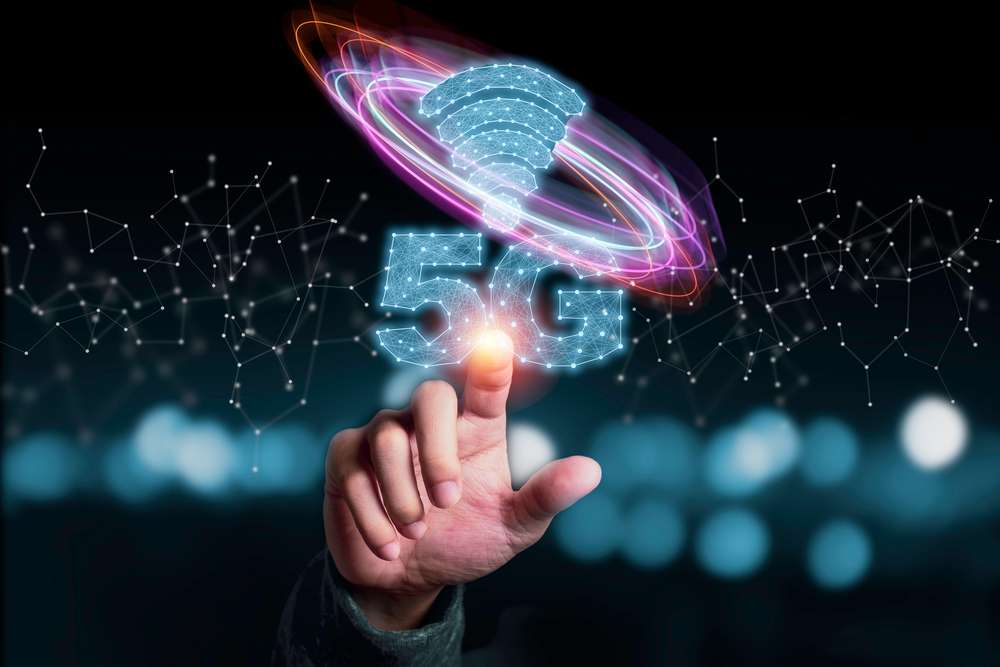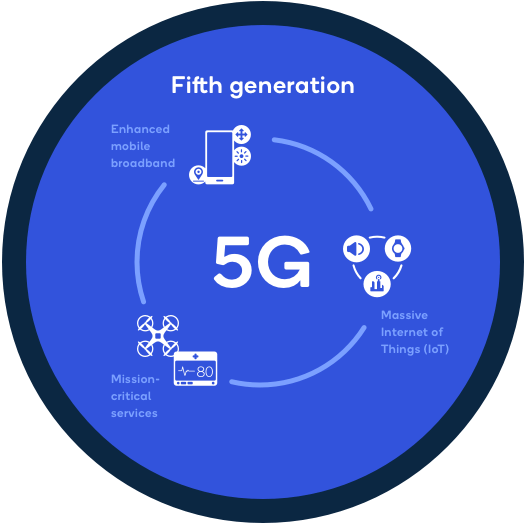Imagine a world where your fridge reminds you to buy milk, your car schedules its own maintenance, and your entire home adjusts its climate settings based on your preferences—all without you lifting a finger. This isn’t the future; it’s the present, powered by IoT, or the Internet of Things.
But there’s a new player that’s set to supercharge these smart devices: 5G network technology. As you navigate through the advancements in technology, the rollout of 5G networks promises to redefine how IoT devices operate. You might wonder how exactly this change impacts your daily life or the gadgets you rely on.
The truth is, with faster speeds and lower latency, 5G is set to make your smart devices smarter and more intuitive. Curious about how this technological leap will affect your world? Stay with us as we explore the impact of 5G on IoT. You’ll discover the transformative potential this network holds and why it matters to you. Dive deeper into the article and see how the 5G revolution could change the way you live, work, and interact with technology.
Enhanced Connectivity
5G networksbring faster data transmission. IoT devices share information quickly. This speed helps devices work better. They send and receive data in seconds. Less waiting time. More efficient communication.
Improved reliabilityis a key benefit. IoT devices depend on stable connections. 5G offers strong and steady signals. Fewer drops in connection. Devices can trust the network. This means better performance and fewer errors.

Scalability Opportunities
5G technology makes device networks grow bigger. More devices can connect at once. This is good for smart homes and cities. IoT devices talk to each other quickly. Everything works smoothly. With 5G, the network handles many devices. No slowdowns or breaks.
Different applications can work well with 5G. Devices in healthcare and transport get faster data. Farmers use IoT for better crops. Factories improve with smart machines. All these need strong networks. 5G supports them all. This makes life easier and safer.
Smart Cities Transformation
Smart cities use 5G networks for better services. Traffic lights change quickly to keep cars moving. Sensors help monitor air quality. This keeps the air clean for everyone.
5G helps in waste collection. Bins send alerts when they are full. This saves time and resources. Cities become cleaner and more organized.
5G supports green energy. Solar panels and wind turbines work better. They send data fast to improve energy use. This helps the planet.
Buildings use less energy with smart systems. Lights and heating adjust automatically. This saves power and cuts costs. 5G makes cities smarter and greener.
Industrial Iot Advancements
5G technology helps machines talk faster. This makes factories work better. Machines can share data quickly. They make smart choices without waiting. Robots and machines work together. They finish tasks without stopping. This saves time and resources. Workers focus on important jobs. Machines handle repetitive tasks. This boosts production and reduces errors. The future of work becomes more efficient with 5G.
Predictive maintenance uses smart sensors. These sensors check machines all the time. 5G makes data flow smooth. It helps find problems early. Fixing machines before they break saves money. Factories avoid unexpected shutdowns. Workers get alerts in advance. They fix issues before they become big. 5G helps keep everything running smoothly. Maintenance becomes easy and predictable.
Healthcare Innovations
5G networks make remote monitoring faster. Devices can send data quickly. Doctors get updates in real time. This helps in patient care. Smart devices track health signs. These include heart rate and blood pressure. Alerts can be sent if something is wrong. This means quicker responses. Patients feel safer at home.
Telemedicine grows with 5G. Video calls are clearer and smoother. Doctors can see patients easily. They can diagnose and give advice. Virtual check-ups become common. Patients save time and travel. This helps those far from hospitals. More people get access to care. Health services reach everyone.

Challenges And Considerations
The 5G network brings fast internet speeds. But, security concerns are a big issue. Many devices will connect to the network. This means more chances for hackers to attack. Protecting data is very important. Strong security measures are needed. Companies need to update their systems. This helps keep information safe. Encryption can help stop data theft. It’s important to stay alert. Always watch for new threats.
Building a 5G network needs new infrastructure. More antennas are required. These antennas must be close together. They help send the signal far. Small cell towers are needed in many places. This can be costly. Some areas may face installation delays. Cities might upgrade faster than rural areas. Planning is key. Good coordination helps build networks on time.

Frequently Asked Questions
What Is The 5g Network Rollout?
5G network rollout refers to the deployment of 5G technology by telecom providers. It offers faster speeds, lower latency, and increased connectivity. This enhances the performance of IoT devices, enabling real-time data processing and efficient communication. The rollout is crucial for smart cities and autonomous vehicles.
How Does 5g Impact Iot Devices?
5G significantly boosts IoT devices by providing faster and more reliable connections. It allows for real-time data processing and communication. This enhances the efficiency of smart devices, enabling seamless integration into smart homes and cities. Improved connectivity supports advanced applications like autonomous driving and remote healthcare.
Why Is 5g Important For Smart Cities?
5G is vital for smart cities due to its high-speed connectivity and low latency. It supports real-time data sharing, essential for smart infrastructure. This enables efficient traffic management, energy conservation, and enhanced public safety. The technology facilitates seamless communication between devices, improving urban planning and service delivery.
Can 5g Enhance Autonomous Vehicles?
Yes, 5G enhances autonomous vehicles by providing fast and reliable communication. It allows real-time data exchange between vehicles and infrastructure. This improves navigation, safety, and efficiency on roads. The technology supports advanced features like remote control and monitoring, making autonomous driving more feasible and secure.
Conclusion
5G network rollout transforms IoT possibilities. Devices now connect faster and smarter. This brings new opportunities in health, industry, and home automation. Businesses can innovate with real-time data. Improved connectivity enhances user experiences and efficiency. Yet, challenges remain. Security and privacy need focus as IoT grows.
The 5G impact is profound and ongoing. Stay informed, adapt, and embrace these changes. IoT’s future looks bright with 5G. Exciting times ahead for tech enthusiasts and everyday users alike.
Read More:
- Network Automation Tools ROI: Boosting Efficiency & Savings
- Noise‑Cancelling Earbuds Battery Life: Maximize Your Usage
- Ci/Cd Pipeline Tools Comparison: Boost Your DevOps Efficiency
- Serverless Vs Containerized Workloads: A Comparative Guide
- Vr Content Creation Tools 2025: Revolutionize Your Creations
- Best Gaming PC Build under $1500: Ultimate Performance
- Best Cross‑Platform Mobile Frameworks 2025: Top Picks
- Javascript Frameworks Benchmark 2025: Speed & Performance

